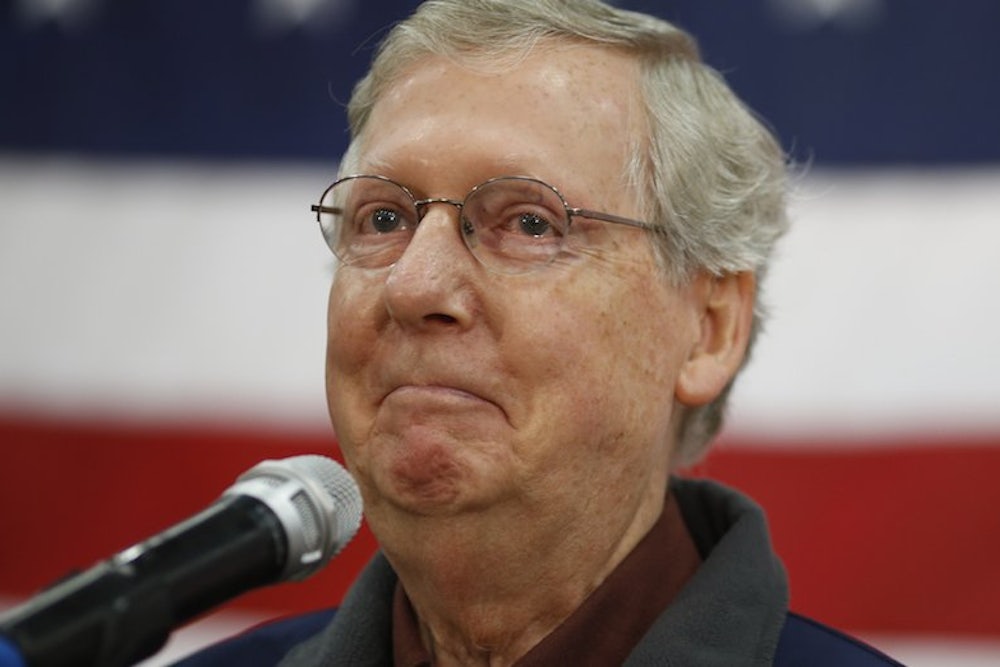Senate Majority Leader Mitch McConnell knows he has few options to derail the Environmental Protection Agency’s proposal to cap carbon pollution from coal-fired power plants. Even if he somehow got legislation past a Democratic filibuster, he would still face a veto from President Barack Obama. Courts could eventually overturn the new regulations, but he will have no say in their decisions. So McConnell is trying to thwart the rules by operating outside the Senate, where any anti-EPA bill would face a dead-end on Obama’s desk.
Earlier in March, McConnell encouraged states to opt out of the EPA’s Clean Power Plan with an op-ed in the Lexington Herald-Leader. On Thursday, McConnell took it a step further by sending a letter to all 50 governors asking them not to submit state implementation plans for curtailing power-plant pollution. By not submitting plans, McConnell thinks states will buy enough time for the coal companies to overturn the EPA in the courts. “They really can’t defeat this through federal legislation, and McConnell is trying to get the governors to do it for him,” Natural Resources Defense Council’s Climate and Clean Air Program Director David Doniger said.
New York University Institute for Policy Integrity Director Richard L. Revesz sees McConnell's strategy as “an effort to mislead the political process,” because EPA opponents know their constitutional argument is weak. “The strategy therefore makes sense,” he said. “They can’t wait for a court to decide it, because Tribe’s constitutional arguments aren’t going to work. These are just legal arguments designed to mislead the political process.”
MConnell’s plan has many faults, including its most obvious problem: States can’t stop federal regulations by choosing to ignore them. If they do, the federal government steps in with its own plan. Notably, no governor has yet come out against submitting a state plan to the EPA. McConnell's approach entirely hinges on the assumption that the EPA regulations will be thrown out in courts, which he can't promise. Even Tribe said McConnell’s approach won’t work, because states “can’t count on” his being right that it will be overturned in courts.
